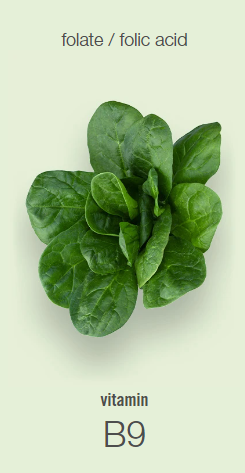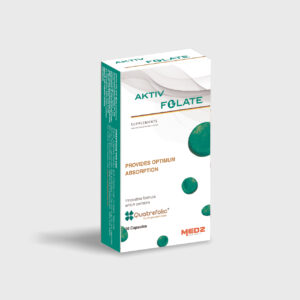Vitamine & Mineralstoffe
The body needs these vitamins
Vitamins are what are known as micronutrients: compounds that our body needs but cannot usually produce themselves, or only in insufficient quantities. Vitamin D occupies a special position because it can be formed by our body itself in interaction with the sun. Vitamins are involved in numerous metabolic processes in the body, help to build cells and hormones, function of enzymes, support the immune system and thus contribute to maintaining our health. The vitamin requirement varies from person to person and depends, among other things, on age, gender, special life situations, and weight.
There are 13 different vitamins: Some of them are fat-soluble and can be stored by the body for some time – mainly in the liver and the body’s fat deposits. These include vitamins A, D, E, and K, which can only be absorbed by the body together with fat.
With the exception of vitamin B12, water-soluble vitamins cannot be stored. It is therefore particularly important that they are supplied to the body daily through food.












These minerals are important to us
Minerals are inorganic substances that are chemically less complex than vitamins. Humans need a lot of them to live, but they cannot produce them themselves and have to get them with food – so they are essential: we need a lot of some minerals, the bulk elements, and less of other minerals, the trace elements. The functions of minerals are diverse. They help to regulate the metabolism, they are jointly responsible for the development of body substances such as bones and teeth and support the control of biochemical processes
Good to know:
These include:
Chloride: contributes to normal digestion through the formation of gastric acid and is contained in a wide variety of foods, such as table salt
Chromium: contributes to normal metabolism of macronutrients and is found in mussels, shrimp, vegetables, and meat, among other things
Fluoride: often added to toothpaste or table salt, is an important building block for teeth and contributes to their mineralization
Molybdenum: contributes to the normal metabolism of sulfur-containing amino acids; contained in legumes, offal, and eggs
Manganese: contributes to the maintenance of normal bones, among other things, and is found in nuts and grain products
Sodium: helps to keep the water balance in the body in balance
Phosphorus: contributes, among other things, to normal energy-yielding metabolism and is contained in cereals, meat, and fish, for example












